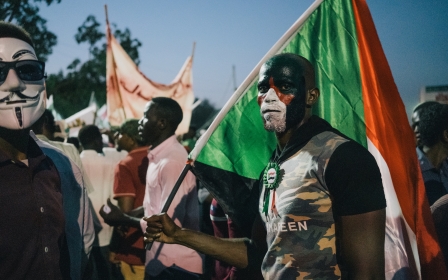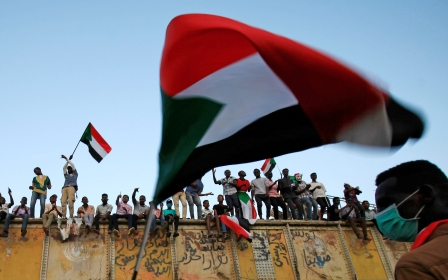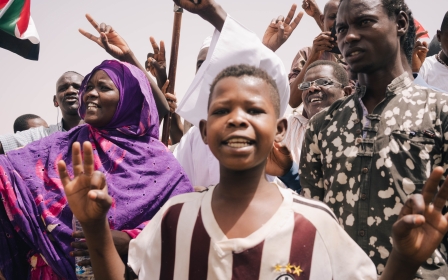Two-day strike starts in Sudan to press military to handover power

Thousands of Sudanese began a two-day strike on Tuesday in an attempt to pile pressure on the military to hand power to a civilian administration.
Hundreds of passengers at Khartoum airport and the Sudanese capital's main bus terminal were stranded, as workers carried banners or wore badges that read, "We are on strike".
Sudanese airlines Badr, Tarco and Nova suspended flights on Tuesday, although some international flights were still scheduled.
Employees observing the strike at Khartoum’s main bus terminal carried banners reading: "Today, tomorrow no buses as we are on strike".
Ahead of the industrial action, protest leaders said medics, lawyers and employees in the electricity, water, public transport, telecommunication and civil aviation sectors were set to take part in the strike.
The strike comes as talks between the Transitional Military Council (TMC) and the Declaration of Freedom and Change Forces (DFCF) alliance of opposition groups have ground to a standstill after weeks of negotiations over who will have control after the ouster of long-time autocrat Omar al-Bashir last month.
Wajdi Saleh, a representative of a group that is part of the DFCF told reporters late on Monday that there was "still no breakthrough" in negotiations but the protest movement was ready to negotiate if the generals offered fresh talks.
"We hope that we reach an agreement with the military council and won't have to go on an indefinite strike," he said.
Saleh said that the TMC had demanded a two-thirds majority, of eight to three, on the sovereign council that will lead the country ahead of elections.
The deputy head of the TMC, Lieutenant-General Mohamed Hamdan Dagalo, also known as Hemedti, said on Monday that the council was ready to hand over power swiftly, but said the opposition was not being serious about sharing power and wanted to confine the military to a ceremonial role.
"By God, their slogans cheated us. I swear we were honest with them 100 percent," Hemedti said at a dinner with police. "That's why, by God Almighty, we will not hand this country except to safe hands."
The military ousted and detained Bashir on 11 April, ending his 30-year rule after 16 weeks of street protests against him spearheaded by the Sudanese Professionals' Association, part of the DFCF.
But thousands of protesters remain camped outside military headquarters in Khartoum, demanding the generals step down.
Hemedti and the chief of the TMC General Abdel Fattah al-Burhan have come in for criticism after touring Egypt, Saudi Arabia and the United Arab Emirates, as fears grow of outside influence.
The TMC has suggested if an agreement cannot be reached between the two sides, elections should be held.
"We are not saying we will not negotiate," Hemedti said. "But we have to guarantee that all the Sudanese people are participating in the matter."
Mubarak Ardol, who represents the Sudan People's Liberation Movement-North, said at a news conference that it was essential to have an accurate and transparent census before elections can be held because millions of Sudanese remain displaced or refugees and would, therefore, be excluded.
"Elections cannot be held in the current situation," Ardol said.
If an agreement is not reached with the TMC, the DFCF will escalate by calling for an open-ended strike and indefinite civil disobedience until power is handed to civilians, Saleh said.
Middle East Eye delivers independent and unrivalled coverage and analysis of the Middle East, North Africa and beyond. To learn more about republishing this content and the associated fees, please fill out this form. More about MEE can be found here.




